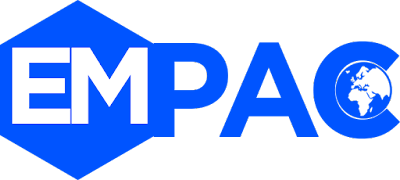Innovation has turned into a fundamental piece of our lives, changing the manner in which we impart, work, and even look for clinical consideration. As of late, the medical services industry has seen an unrest energized by progressions in innovation. From upgrading patient consideration and further developing determinations to smoothing out managerial cycles, the effect of innovation on medical services has been progressive. This article investigates the critical manners by which innovation has reshaped the medical services industry, delivering another time of patient-driven, proficient, and open medical services.
Worked on Quiet Consideration and Determinations
One of the most remarkable effects of innovation on the medical services industry is its capacity to improve patient consideration and conclusions. High level clinical gadgets, wearable sensors, and remote checking instruments have enabled medical care experts to gather continuous information and screen patients' ailments actually. These mechanical advancements have worked with early identification of sicknesses, considering more exact conclusions and customized therapy plans.
Additionally, computerized reasoning (artificial intelligence) and AI calculations have demonstrated priceless in dissecting huge measures of clinical information to recognize examples and patterns. This has prompted more exact and ideal determinations, lessening the potential for misdiagnoses and clinical blunders. Subsequently, patients can get fitting medicines expeditiously, prompting further developed results and improved generally nature of care.
Telemedicine and Remote Consideration
Telemedicine has arisen as a unique advantage in the medical services industry, particularly during the Coronavirus pandemic. Telemedicine use correspondence advancements to give far off meetings among patients and medical care suppliers. It has demonstrated especially advantageous for people living in rustic or underserved regions, as it dispenses with geological boundaries to medical care access.
Through telemedicine, patients can talk with trained professionals, get remedies, and go through follow-up arrangements without the requirement for actual visits. This saves time and travel costs as well as diminishes the gamble of contamination spread in medical care offices. Telemedicine has changed how medical services is conveyed, making it more helpful and open to a more extensive populace.
Electronic Wellbeing Records (EHRs) and Information The board
The change from paper-based records to electronic wellbeing records (EHRs) has smoothed out medical care information the executives and worked on persistent security. EHRs unite patient data, including clinical history, test results, and solutions, into a computerized design open to approved medical services suppliers. This unified methodology diminishes the possibilities of mistakes brought about by indecipherable penmanship or lost records, prompting more secure and more proficient patient consideration.
Moreover, amassed information from EHRs has huge potential for clinical examination and general wellbeing drives. With appropriate shields and anonymization, analysts can investigate huge datasets to distinguish illness designs, risk elements, and likely therapies, propelling clinical information and further developing populace wellbeing results.
Accuracy Medication
Headways in genomics and sub-atomic diagnostics have made ready for accuracy medication, an original way to deal with medical care that tailors therapies to a person's hereditary cosmetics, way of life, and climate. By dissecting a patient's hereditary data, medical care suppliers can distinguish customized therapy choices that are bound to be compelling and make less unfriendly impacts.
Accuracy medication has changed the administration of conditions like disease, where designated treatments can be created to go after unambiguous transformations in a patient's growth. It holds incredible commitment for treating a great many sicknesses, possibly moving medical services from a one-size-fits-all way to deal with customized, information driven care.
The effect of innovation on the medical care industry couldn't possibly be more significant. From working on persistent consideration and analyses through artificial intelligence driven bits of knowledge to empowering far off interviews through telemedicine, innovation has reformed how medical services is conveyed and experienced. The mix of tech in medical care has delivered a patient-driven approach, expanded openness, and improved clinical results.
As innovation keeps on advancing, we can expect much more advancements that will additionally change the medical services scene. In any case, it is fundamental for address concerns connected with information security, online protection, and evenhanded admittance to guarantee that innovation's potential advantages are acknowledged by all. With proceeded with cooperation between the innovation and medical services areas, we can anticipate a future where medical care is more compelling, effective, and empathetic than any time in recent memory.



0 Comments